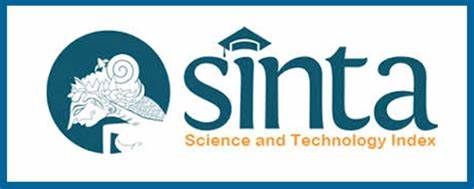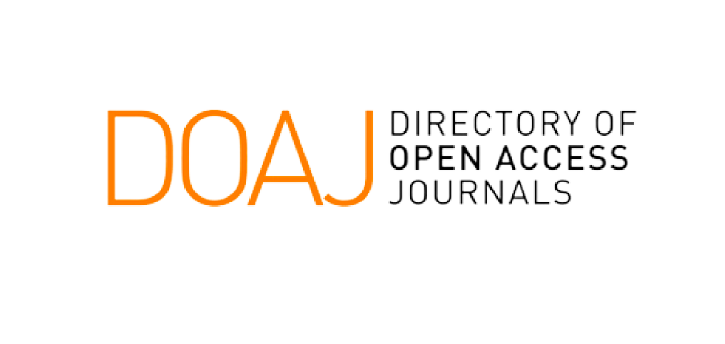REVOLUTION OF MENTAL IN THE PERSPECTIVE OF PANCASILA EDUCATION
Abstract
Revolution of Mental in The Perspective of Pancasila Education. This scientific writing merely aims to study further the meaning of mental revolution existing in Indonesia as one of such either program or what later is called national movement in order for the nation itself to generate the nation’s next generation possessing the great and real character of Pancasila. To say more, the study of mental revolution also has an objective or goal for the youth to be able to compete and face actively the change of the global world characteristically based on Pancasila perspective. This study takes the critical view of the young generation who shows almost little or no respect to the application of the value of Pancasila in their daily. In other words, the jubilee tends to ignore the moral value of behavior containing Pancasila. The study then applies the qualitative methode through the study of literature which is then processed using descriptive analysis. This qualitative study furthermore derives the analysis of mental revolution from the perspective of Pancasila education: background, process, and goal of mental revolution itself. To conclude as the last point, it is obtained that the meaning of Pancasika education exceeds the meaning of mental revolution itself, which means thay mental revolution is merely one of such many aspects learnt from the education of Pancasila
Keywords
Full Text:
PDFReferences
Azra, A. 2002. Paradigma Baru Pendidikan Nasional: Rekonstruksi dan Demokratisasi. Jakarta: Penerbit Buku Kompas.
Budimanta, Arief, dkk, 2015. Panduan Umum Gerakan Nasional Revolusi Mental, Jakarta: Kemenko Bidang Pembangunan Manusia dan Kebudayaan (PMK).
Cahyo, E.D, 2017. Pendidikan Karakter Guna Menanggulangi Dekadensi Moral Yang Terjadi Pada Siswa Sekolah Dasar. EDUHUMANIORA: Jurnal Pendidikan Dasar, 9 (1), 16-26. DOI: http://dx.doi.org/10.17509/eh.v9i1.6150
Depdikbud, 1991. Kamus Besar Bahasa Indonesia, Jakarta: Balai Pustaka.
Fajarini, U. 2014. Peranan Kearifan Lokal Dalam Pendidikan Karakter. SOSIODIDAKTIKA: Social Science Education Journal, 1(2), 123-130.
Hakim, Alif Lukmanul. 2017. Membangun Karakter Bangsa Melalui Implementasi Pendidikan Karakter Islami Dalam Keluarga. Ta’dib: Jurnal Pendidikan Islam, 6 (1) 177-188.
Kemdiknas. 2010. Buku Induk Pembangunan Karakter. Jakarta.
Kemdiknas. 2010. Desain Induk Pendidikan Karakter. Jakarta.
Kemdiknas. 2011. Panduan Pelaksanaan Pendidikan Karakter. Jakarta.
Latif, Yudi. 2011. Negara Paripurna: Historisitas, Rasionalitas, dan Aktualitas Pancasila. Jakarta: Gramedia Pustaka Utama.
Makhmudah, S. 2016. Revolusi Mental dakam Mengubah Pola Pikir Tenaga Pendidik dari Segi Perspektif Islam. Jurnal EDUCATIO: Jurnal Pendidikan Indonesia, 2(1) 86-91.
McCain, J. 2009. Karakter-karakter yang Menggugah Dunia. Jakarta: PT Gramedia Pustaka Utama.
Raharjo, S.B. 2010. Pendidikan Karakter Sebagai Upaya Menciptakan Akhlak Mulia. Jurnal Pendidikan dan Kebudayaan, 16(3), 229-238.
Wahyudi, Agus. 2004. Ideologi Pancasila: Doktrin yang Komprehensif atau Konsepsi Politis. Yogyakarta: Pusat Studi Pancasila UGM
Zed, M. 2004. Metode Penelitian Kepustakaan. Jakarta: Yayasan Obor Indonesia.
DOI: https://doi.org/10.21776/ub.waskita.2021.005.01.3
Refbacks
- There are currently no refbacks.
Copyright (c) 2021 Alif Lukmanul Hakim

This work is licensed under a Creative Commons Attribution 4.0 International License.









